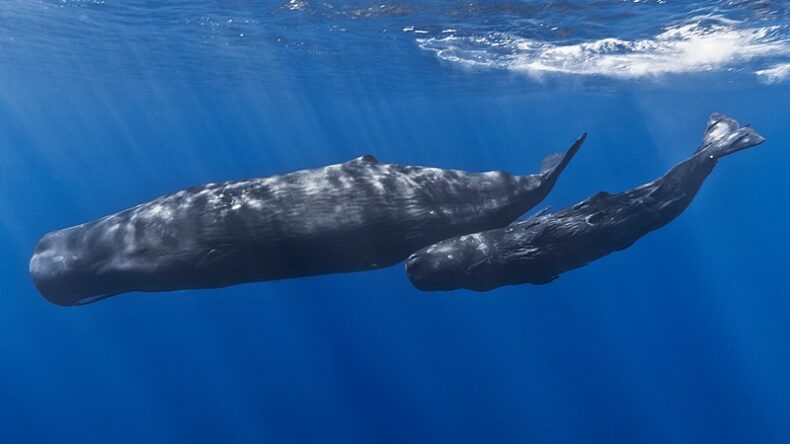
Freshly back from my annual pilgrimage to TED, I’m taking stock of the brain-fizzing input that came my way all week in Vancouver. Each year has its own balance of technology, entertainment and design, and this year all three had a distinctly artificial intelligence flavor. The conference is built on ‘ideas worth spreading’, but the one that seems to be sticking with me now is not one of the talks, per se, but an idea for a future TED talk: one delivered by an animal.
You see, TED used to have an annual prize of a million dollars given to one person – Bill Clinton, say, for his health infrastructure project in Rwanda. This year, they gave away one billion dollars to ten people, each a leader of what it dubs an Audacious Project. It’s money donated by the usual suspects, the Gates Foundation, MacKenzie Scott, and others. And one of those Audacious Projects is, I kid you not, honest-to-goodness translating whales.
I talked to the leader of Project CETI (the Cetacean Translation Initiative), a marine biologist who described to me his sperm whale subjects. They spend a few minutes at the surface before they dive down to the depths of the ocean and break all of his listening equipment for hours. Through natural language processing (yes, more AI) his team has been able to decipher the phonetic alphabet of these whales’ combinatorial language – something only humans had been thought to possess. A few minutes into their time at the surface, he says, these whale pods start chatting amongst themselves about diving. That’s the first concept his analysis was able to identify in the language. And then, after a distinctive series of clicks, they all dive together.
It would be great to hear a whale’s ideas on the TED stage one day soon, even if there are ethical questions around whether we should be acting like Amy Adams in Arrival, communicating back to animals in their own languages and disrupting them in yet another way. But a TED friend pointed out that it would actually be a lot easier to train an AI model to converse with those animals directly, in the same way GPT-4 interacts with us. Except that we would then understand neither the AI nor the whales. And that, to me, would feel like a more fitting gift.
Can’t help but think of this:
“The last ever dolphin message was misinterpreted as a surprisingly sophisticated attempt to do a double-backwards-somersault through a hoop whilst whistling the ‘Star Spangled Banner’, but in fact the message was this: So long and thanks for all the fish. ” ― Douglas Adams, The Hitchhiker’s Guide to the Galaxy